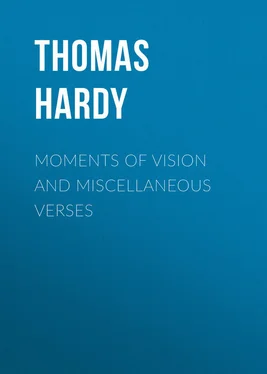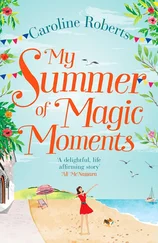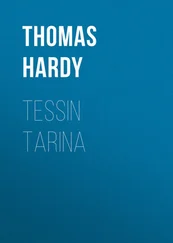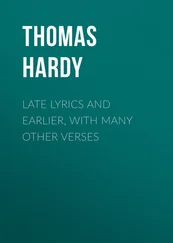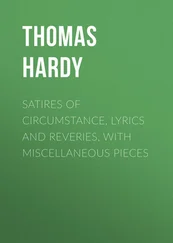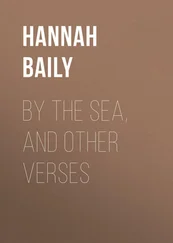Thomas Hardy - Moments of Vision and Miscellaneous Verses
Здесь есть возможность читать онлайн «Thomas Hardy - Moments of Vision and Miscellaneous Verses» — ознакомительный отрывок электронной книги совершенно бесплатно, а после прочтения отрывка купить полную версию. В некоторых случаях можно слушать аудио, скачать через торрент в формате fb2 и присутствует краткое содержание. Жанр: foreign_antique, foreign_prose, на английском языке. Описание произведения, (предисловие) а так же отзывы посетителей доступны на портале библиотеки ЛибКат.
- Название:Moments of Vision and Miscellaneous Verses
- Автор:
- Жанр:
- Год:неизвестен
- ISBN:нет данных
- Рейтинг книги:3 / 5. Голосов: 1
-
Избранное:Добавить в избранное
- Отзывы:
-
Ваша оценка:
- 60
- 1
- 2
- 3
- 4
- 5
Moments of Vision and Miscellaneous Verses: краткое содержание, описание и аннотация
Предлагаем к чтению аннотацию, описание, краткое содержание или предисловие (зависит от того, что написал сам автор книги «Moments of Vision and Miscellaneous Verses»). Если вы не нашли необходимую информацию о книге — напишите в комментариях, мы постараемся отыскать её.
Moments of Vision and Miscellaneous Verses — читать онлайн ознакомительный отрывок
Ниже представлен текст книги, разбитый по страницам. Система сохранения места последней прочитанной страницы, позволяет с удобством читать онлайн бесплатно книгу «Moments of Vision and Miscellaneous Verses», без необходимости каждый раз заново искать на чём Вы остановились. Поставьте закладку, и сможете в любой момент перейти на страницу, на которой закончили чтение.
Интервал:
Закладка:
Maybe they have met for a parle on some plan
To better ail-stricken mankind;
I catch their cheepings, though thinner than
The overhead creak of a passager’s pinion
When leaving land behind.
Or perhaps they speak to the yet unborn,
And caution them not to come
To a world so ancient and trouble-torn,
Of foiled intents, vain lovingkindness,
And ardours chilled and numb.
They waste to fog as I stir and stand,
And move from the arched recess,
And pick up the drawing that slipped from my hand,
And feel for the pencil I dropped in the cranny
In a moment’s forgetfulness.
TO SHAKESPEARE AFTER THREE HUNDRED YEARS
Bright baffling Soul, least capturable of themes,
Thou, who display’dst a life of common-place,
Leaving no intimate word or personal trace
Of high design outside the artistry
Of thy penned dreams,
Still shalt remain at heart unread eternally.
Through human orbits thy discourse to-day,
Despite thy formal pilgrimage, throbs on
In harmonies that cow Oblivion,
And, like the wind, with all-uncared effect
Maintain a sway
Not fore-desired, in tracks unchosen and unchecked.
And yet, at thy last breath, with mindless note
The borough clocks but samely tongued the hour,
The Avon just as always glassed the tower,
Thy age was published on thy passing-bell
But in due rote
With other dwellers’ deaths accorded a like knell.
And at the strokes some townsman (met, maybe,
And thereon queried by some squire’s good dame
Driving in shopward) may have given thy name,
With, “Yes, a worthy man and well-to-do;
Though, as for me,
I knew him but by just a neighbour’s nod, ’tis true.
“I’ faith, few knew him much here, save by word,
He having elsewhere led his busier life;
Though to be sure he left with us his wife.”
– “Ah, one of the tradesmen’s sons, I now recall.
Witty, I’ve heard.
We did not know him.. Well, good-day. Death comes to all.”
So, like a strange bright bird we sometimes find
To mingle with the barn-door brood awhile,
Then vanish from their homely domicile —
Into man’s poesy, we wot not whence,
Flew thy strange mind,
Lodged there a radiant guest, and sped for ever thence.
1916.
QUID HIC AGIS?
When I weekly knew
An ancient pew,
And murmured there
The forms of prayer
And thanks and praise
In the ancient ways,
And heard read out
During August drought
That chapter from Kings
Harvest-time brings;
– How the prophet, broken
By griefs unspoken,
Went heavily away
To fast and to pray,
And, while waiting to die,
The Lord passed by,
And a whirlwind and fire
Drew nigher and nigher,
And a small voice anon
Bade him up and be gone, —
I did not apprehend
As I sat to the end
And watched for her smile
Across the sunned aisle,
That this tale of a seer
Which came once a year
Might, when sands were heaping,
Be like a sweat creeping,
Or in any degree
Bear on her or on me!
When later, by chance
Of circumstance,
It befel me to read
On a hot afternoon
At the lectern there
The selfsame words
As the lesson decreed,
To the gathered few
From the hamlets near —
Folk of flocks and herds
Sitting half aswoon,
Who listened thereto
As women and men
Not overmuch
Concerned at such —
So, like them then,
I did not see
What drought might be
With me, with her,
As the Kalendar
Moved on, and Time
Devoured our prime.
But now, at last,
When our glory has passed,
And there is no smile
From her in the aisle,
But where it once shone
A marble, men say,
With her name thereon
Is discerned to-day;
And spiritless
In the wilderness
I shrink from sight
And desire the night,
(Though, as in old wise,
I might still arise,
Go forth, and stand
And prophesy in the land),
I feel the shake
Of wind and earthquake,
And consuming fire
Nigher and nigher,
And the voice catch clear,
“What doest thou here?”
The Spectator 1916. During the War.
ON A MIDSUMMER EVE
I idly cut a parsley stalk,
And blew therein towards the moon;
I had not thought what ghosts would walk
With shivering footsteps to my tune.
I went, and knelt, and scooped my hand
As if to drink, into the brook,
And a faint figure seemed to stand
Above me, with the bygone look.
I lipped rough rhymes of chance, not choice,
I thought not what my words might be;
There came into my ear a voice
That turned a tenderer verse for me.
TIMING HER
( Written to an old folk-tune )
Lalage’s coming:
Where is she now, O?
Turning to bow, O,
And smile, is she,
Just at parting,
Parting, parting,
As she is starting
To come to me?
Where is she now, O,
Now, and now, O,
Shadowing a bough, O,
Of hedge or tree
As she is rushing,
Rushing, rushing,
Gossamers brushing
To come to me?
Lalage’s coming;
Where is she now, O;
Climbing the brow, O,
Of hills I see?
Yes, she is nearing,
Nearing, nearing,
Weather unfearing
To come to me.
Near is she now, O,
Now, and now, O;
Milk the rich cow, O,
Forward the tea;
Shake the down bed for her,
Linen sheets spread for her,
Drape round the head for her
Coming to me.
Lalage’s coming,
She’s nearer now, O,
End anyhow, O,
To-day’s husbandry!
Would a gilt chair were mine,
Slippers of vair were mine,
Brushes for hair were mine
Of ivory!
What will she think, O,
She who’s so comely,
Viewing how homely
A sort are we!
Nothing resplendent,
No prompt attendant,
Not one dependent
Pertaining to me!
Lalage’s coming;
Where is she now, O?
Fain I’d avow, O,
Full honestly
Nought here’s enough for her,
All is too rough for her,
Even my love for her
Poor in degree.
She’s nearer now, O,
Still nearer now, O,
She ’tis, I vow, O,
Passing the lea.
Rush down to meet her there,
Call out and greet her there,
Never a sweeter there
Crossed to me!
Lalage’s come; aye,
Come is she now, O!.
Does Heaven allow, O,
A meeting to be?
Yes, she is here now,
Here now, here now,
Nothing to fear now,
Here’s Lalage!
BEFORE KNOWLEDGE
When I walked roseless tracks and wide,
Ere dawned your date for meeting me,
O why did you not cry Halloo
Across the stretch between, and say:
“We move, while years as yet divide,
On closing lines which – though it be
You know me not nor I know you —
Will intersect and join some day!”
Then well I had borne
Each scraping thorn;
But the winters froze,
And grew no rose;
No bridge bestrode
The gap at all;
No shape you showed,
And I heard no call!
Интервал:
Закладка:
Похожие книги на «Moments of Vision and Miscellaneous Verses»
Представляем Вашему вниманию похожие книги на «Moments of Vision and Miscellaneous Verses» списком для выбора. Мы отобрали схожую по названию и смыслу литературу в надежде предоставить читателям больше вариантов отыскать новые, интересные, ещё непрочитанные произведения.
Обсуждение, отзывы о книге «Moments of Vision and Miscellaneous Verses» и просто собственные мнения читателей. Оставьте ваши комментарии, напишите, что Вы думаете о произведении, его смысле или главных героях. Укажите что конкретно понравилось, а что нет, и почему Вы так считаете.
